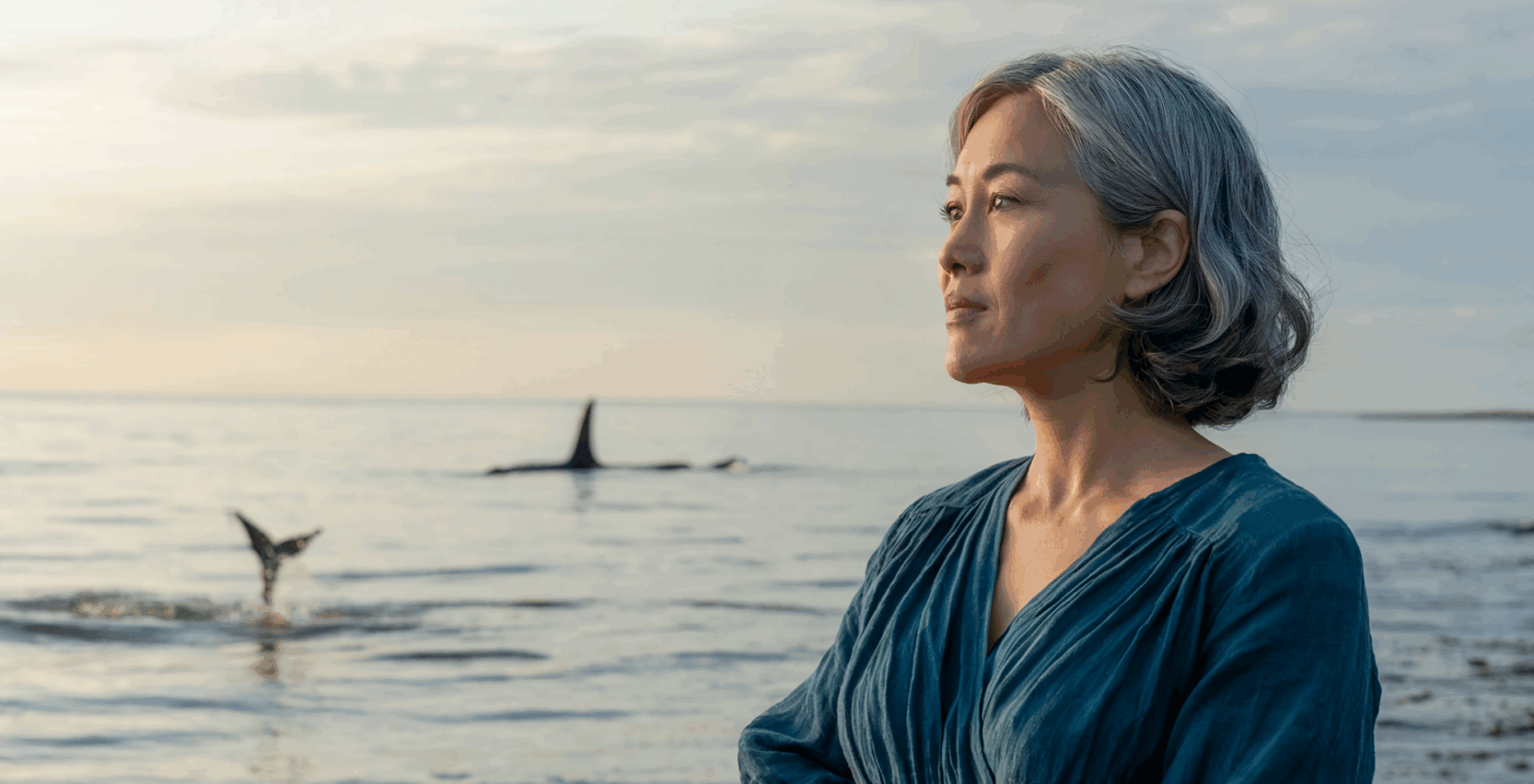Menopause Isn’t Just a Human Thing—But It Almost Is
When we think of menopause, we often picture hot flashes, night sweats, and hormone therapy. But what if we zoomed out—to the animal kingdom? Turns out, true menopause is exceptionally rare in nature. Besides humans, it’s only been observed in a few whales, like orcas and narwhals. That’s it.
Most mammals don’t “pause” reproduction the way humans do. They experience a gradual decline in fertility, sure—but they typically keep cycling until late in life. And yet, in species where menopause does occur, something interesting happens: post-reproductive females often take on new roles. Among orcas, for example, older females become pod leaders and survival guides, literally helping their kin stay alive.
In humans, that post-reproductive shift is equally powerful—but it comes with biological costs. As estrogen declines, our metabolism begins to misfire. Fat gets redistributed, muscle mass dips, insulin resistance creeps in, and cholesterol numbers inch upward. In short: metabolic health becomes a central player in the menopause story—and it’s often overlooked.
Yes, hot flashes are disruptive. But the quiet, cellular shifts in glucose regulation, lipid metabolism, and body composition may be even more consequential. In fact, researchers rely on ovariectomized rodents to model these changes. When their estrogen drops, they develop visceral fat, insulin resistance, and fatty liver disease—just like postmenopausal women.
So what does this mean for us?
It means menopause isn’t the end of something—it’s the shift into something metabolically different. And it requires us to move beyond the “menopause is just about hormones” narrative. It’s about heart health, brain aging, bone density, and blood sugar. It’s about lifestyle—yes, movement, protein, sleep, and strength training—but also about how we see ourselves in this new phase.
And it’s about permission. To say: This is hard, and it matters.
Because if orcas can lead pods post-menopause, surely we can lead ourselves—with knowledge, curiosity, and a lot more grace than we’re often taught to give.
By Dr. Jen Burke, MD
CAQSM, DipABLM, NBC-HWC, MSCP

